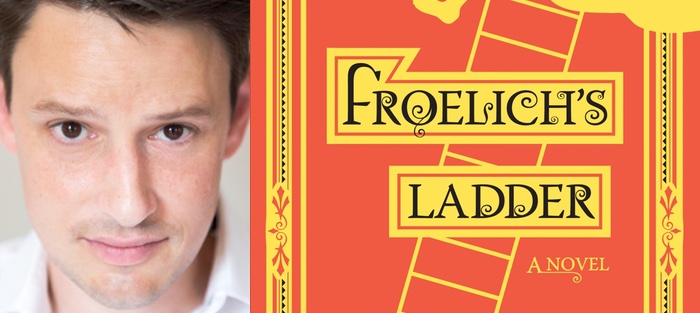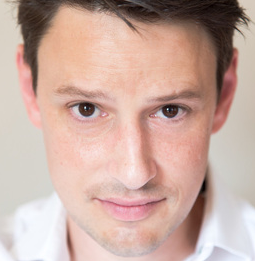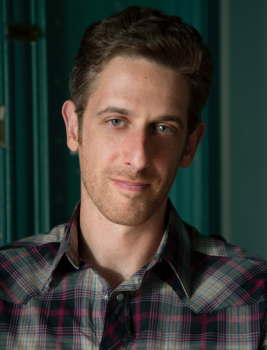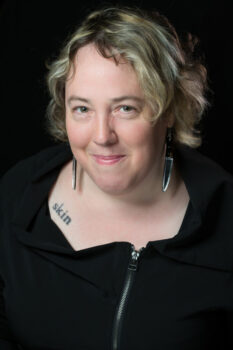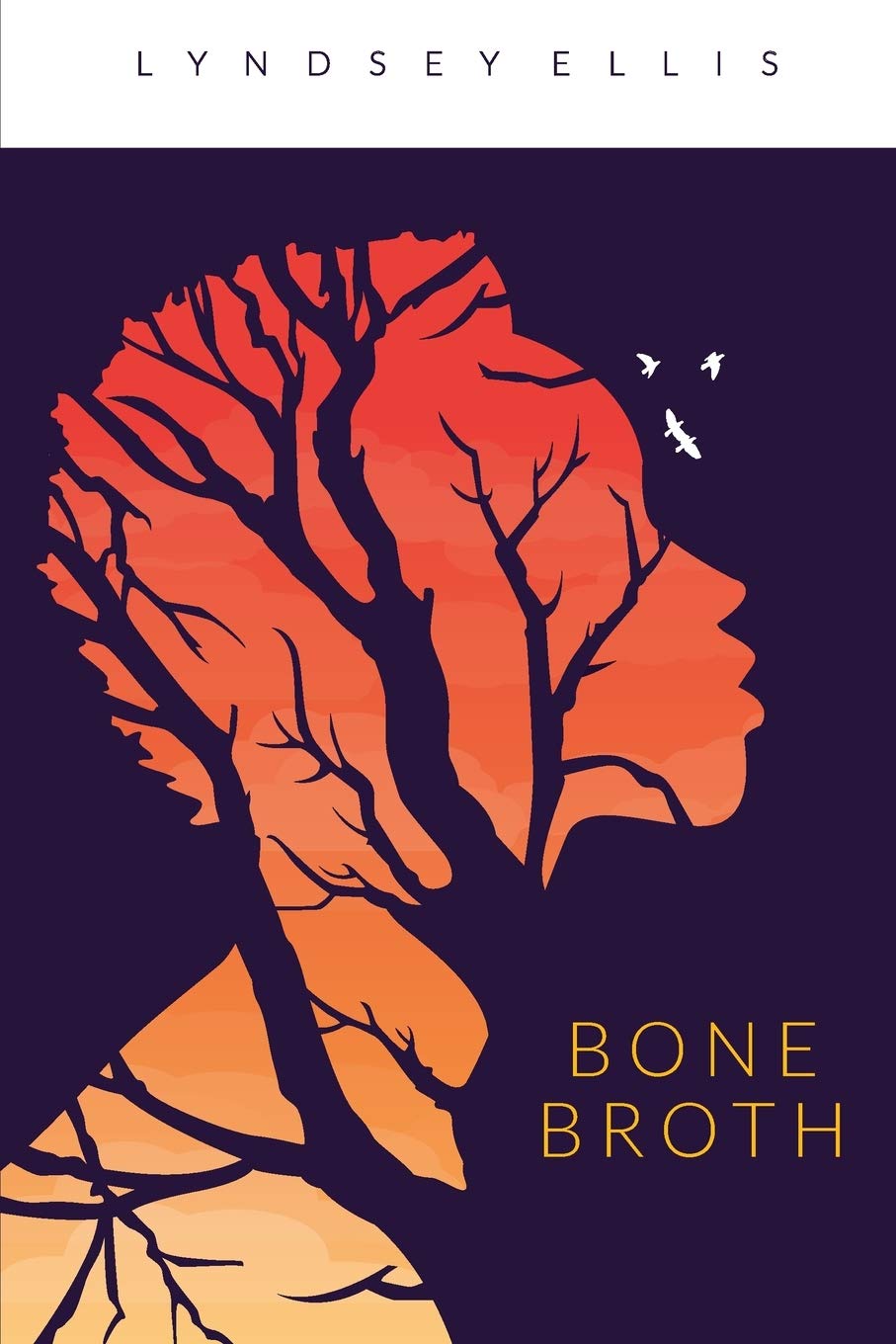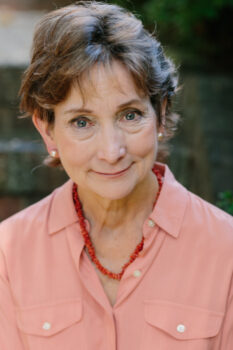I’ve never met Jamie Duclos-Yourdon. It was Jamie’s ex-wife, Melissa Duclos, with whom I got my MFA in fiction at Columbia University, who first put us in touch over email, explaining that we’d written similar debut novels and how it might be fun for us to undertake something promotional together. My novel, Shadows in Summerland (ChiZine Publications), released in May, charts the rise and fall of spiritualists, spirit photographers, and not a few actual spirits in Civil War-era Boston. Duclos-Yourdon’s novel, Froelich’s Ladder (Forest Avenue Press), published in August, charts the twists and turns of a uniquely odd American family in 1850’s Oregon, one of whom (Froelich) has constructed an immense, phantasmagorical ladder into the heavens, where he nurses an age-old family grudge.
Melissa appeared to be right on the money.
I must admit, however, that in the chaos of touring for and promoting Shadows in Summerland, and with so many interviews lined up already, the prospect of one more seemed merely exhausting. That was until I began speaking with Jamie and reading his book, which is really everything they say. Written with elegant, plainspoken glibness and a melancholy reverence for the pastoral life, Froelich’s Ladder charmed me quickly. The author himself came next: funny, straightforward, disarmingly sweet, and tireless in putting our kinship in print.
A freelance editor and technical expert, Jamie Duclos-Yourdon received his MFA in Creative Writing from the University of Arizona. His short fiction has appeared in the Alaska Quarterly Review, Underneath the Juniper Tree, and Chicago Literati, and he has contributed essays and interviews to Booktrib. He lives in Portland, Oregon.
I am happy indeed to have chatted with Jamie, and even more so to have read Froelich’s Ladder. In early September over email, we discussed the urgency of revisionist historical novels, the anxiety and ecstasy of influence, historical fiction’s role in the shaping of national identity, and having kids while being utterly unable to protect them from the terrors of life, among a host of other topics.
Interview:
Adrian Van Young: Froelich’s Ladder and Shadows in Summerland are both historical novels with a heavily researched sense of 19th-century atmosphere and place, yet both contain events far outside the pale of what might be considered realistic. Froelich, among other things, has its ladder, Shadows has its crabby ghosts. Both are revisionist historical novels, and both view the past through fantastical goggles. Can you speak to the interpenetration of these elements in your fiction? What is it about retelling history, uniquely, that allows novelists to explore stranger things than are dreamt of in our collective philosophy?
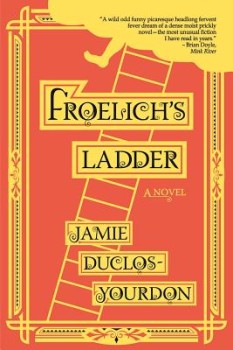 Jamie Duclos-Yourdon: I guess my answer depends on what the novelist determines first—the necessity for historical context or the more fantastical aspects of his or her novel. Put another way, which came first, 1859 Boston or the crabby ghosts?
Jamie Duclos-Yourdon: I guess my answer depends on what the novelist determines first—the necessity for historical context or the more fantastical aspects of his or her novel. Put another way, which came first, 1859 Boston or the crabby ghosts?
In regards to Froelich, I started with the ladder. I knew it would be incredibly tall, but not who would be on or under its rungs. As my characters began to emerge (brothers, German émigrés), the strictures of plot and, dare I say, realism forced me to make certain decisions. I couldn’t fathom these people and this totem existing in contemporary America, but 1850 Oregon Country? Somehow that seemed appropriate.
Do you think a willingness to celebrate or highlight fabulist tendencies might benefit the historical novel? I mean, let’s face it, the traditional model can be unappealing to readers—fusty, even. Did you make a concerted effort to zazz it up?
Well, sure, I think I probably was, though I’ve found that a great deal of realist, non-revisionist historical novels are just as—if not more—mesmerizing to me than their non-realist, revisionist counterparts. So I certainly don’t think a historical novel needs a fantastical element to be interesting. Though, as you say, there is something superficially fusty about the form—a certain sarchophagal quality that you have break through before you earn most contemporary readers’ engagement. Since I was writing a novel about spiritualism and spirit photography in 19th-century Boston, I figured what better way to “zazz” things up than including a host of irate, confused ghosts. Though what came first was Boston, 1859.
That said, I also believe that writing a historical novel that revises history—both on the level of what actually happened in the historical record and on the level of reality as we know it—has the potential to say something fascinating about the way we go about recounting and enshrining history itself. I mean, given that history as we engage with it is often one person’s very specific interpretation of events, speaking out of a very specific culture, at a very specific time and place, the act of rewriting history through non-realist fiction begins to seem just as ironclad in many ways as the act of writing history through historiography, biography, and other, “truer” forms. To my thinking, then, non-realist, revisionist historical novels like ours are meta-commentaries on the way we go about constructing history. This happened, you’re claiming? Well, why not this. Which is why what you say about “1850 Oregon County” as the only suitable setting for Froelich really rings true to me. History comes with lots of strictures, but also total liberty.
Reading your novel, I’m reminded of a host of other non-realist, revisionist historical novels: Peter Carey’s Illywhacker, and The True History of the Kelly Gang; Patrick deWitt’s The Sisters Brothers; Chris Adrian’s Gob’s Grief, among many more. What did you have in mind, template-wise, when writing the novel? Were there any other more traditional, non-revisionist or maybe even non-historical novels you were looking to by way of influence?
It’s funny that you mention Patrick deWitt—I’ve hounded that guy all around town! Hey, Pat, congrats on the PNBA award. Can I touch it? Whoa, Pat, you live in North Portland, too? We’re practically neighbors! Me again, Pat. Anyone sitting here? Actually, he’s a really nice guy, who’s very generous with his time. Froelich has drawn many comparisons to The Sisters Brothers, mainly because of the locale, the time period, and the similar cover art. I won’t flatter myself that the similarities extend to our writing.
One of my biggest inspirations for this novel was Brian Doyle, another writer based in the Pacific Northwest. Brian’s stories are largely contemporary, so I didn’t borrow from the historical context; more so, I learned from (and took license from) his sensibility, which is humorous, compassionate, and ultimately profound. He likes to draw the reader’s attention to the unreality of daily life—like how an adolescent boy can befriend a pine marten, or how a fantastic detail can make a situation more real. He reminds me of Kelly Link, whom I first read in 2008 and now credit with setting me down this fabulist path.
But I think I see a rift developing: you gently nudge me toward historical fiction and I feint sideways. How about you? You’re clearly familiar with the genre of historical fiction—which authors inspired Shadows?
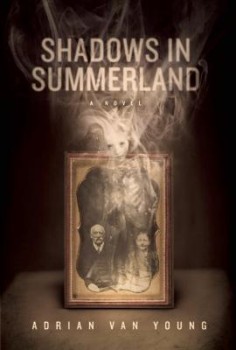 Well, that’s one of the coolest things about influence, right? When it takes the form of something other than it originally was when you encountered it, you more or less know it’s been incorporated into your style, and you’re not just aping someone else’s work. To that degree, I see the Link—the Link-age, maybe, we can call it!—but also made fresh in a new genre context.
Well, that’s one of the coolest things about influence, right? When it takes the form of something other than it originally was when you encountered it, you more or less know it’s been incorporated into your style, and you’re not just aping someone else’s work. To that degree, I see the Link—the Link-age, maybe, we can call it!—but also made fresh in a new genre context.
As you suspect, yes, I had some very specific models in mind when I was researching, outlining and writing Shadows in Summerland. The biggest ones were: Peter Carey’s Jack Maggs, Sarah Waters’ Affinity, John Wray’s Canaan’s Tongue, Frederick Busch’s The Night Inspector, and Toni Morrison’s Beloved—not tough acts at all to follow, right?
In the end, though, two books that had perhaps the greatest influence on Shadows in Summerland were historical novels of a very traditional pedigree—Hilary Mantel’s Wolf Hall (2009) and Bring up the Bodies (2012), about the life of Henry VIII. From what I’ve heard Mantel say about them, and so far as I can tell as a reader, these novels are strictly in tune with the historical record, yet they also have this exceptional propulsive energy and emotional depth to them that’s unrivaled, in my opinion, by any other historical novels written in the last ten years. They’re written in the present tense! They make you care deeply for Oliver Cromwell!
Both of us cite a lot of American authors in our discussion of influence, which also makes sense because we’re both, well, American, but our books also hinge on American problems and American dreams, of one kind or another. How would you describe Froelich’s Ladder’s approach to these oft-discussed notions? In what direction to you see American literature tending in how it reckons with national identity—are we more comfortable with the nation we are and are we far more ill at ease?
American identity and its attendant tropes were foremost in my mind as I drafted Froelich, including (in no particular order): Capitalism, the American Dream, Manifest Destiny, the immigrant experience, the national discussion on race—the list goes on and on. Central to the novel is the fourth tallest ladder in recorded history, a great, honking metaphor if ever there was one. My characters literally climb the ladder of success. Oh, and Johnny Appleseed gets a mention. This book should be run up a flagpole.
I’ll offer a personal interpretation of “being American” (and explode the Comments section) before circling back to Froelich. Question: is it more patriotic to sit or to stand during the National Anthem? Answer: yes. There’s no objective truth—no fixed definition of patriotism, whether in regards to ceremony, service, or representation. American identity differs from person to person. In fact, it’s the ways in which we differ, rather than our similarities, that provide real depth and nuance to the national character.
Thus, how first- and second-generation émigrés would vary in their acceptance of filial responsibility; how the notion of success (and its value) would vary among countrymen, and whether fame is a greater or lesser pursuit; how a community would conceive of and enforce gender norms; how minority status is passed around like a hot potato; these and other issues arise among the characters in Froelich, just as they’re hotly contested today.
Allow me to turn the question back on you: what role does American identity play in Shadows, or what role did it play from the storyteller’s perspective? Did you—do you—think of your work in the context of American Literature?
I like what you say about the national character in fiction. That seems to me the preoccupation of historical novelists in any country, but especially America; they view history as a continuum that, observed from different angles, informs such a character—or anyway a composite sketch of it. To touch on science fiction as a corollary, and how it supposedly tells us more about the time in which it was written than any imagined future: that can be applied broadly to historical fiction, but in regard to the past. It seeks to know our world, today.
Much like you, I had a specific set of concerns in mind vis-a-vis American identity when writing Shadows in Summerland and so by default, yes, I was quite conscious of myself as occupying one point on a greater spectrum of American literature as I wrote. Now, generally, that place of self-consciousness might not seem like the best place to be while writing a novel, but when it comes to writing a historical novel, I do think it can carry certain advantages. And so, knowing that I wanted to address things like the American tradition of the confidence man/woman (spirit photographers and spiritualists on the make), the duplicity of and anxiety surrounding emergent technologies (photography), the complexities of race and gender relations (female spiritualists, northeastern free men of color), America’s emotionally conflicted relationship with the occult (séances, ectoplasmic births), great traditions of American liberalism (Spiritualists, Unitarians, Quakers) and class tensions (merchant artists, Boston Brahmins), became useful in envisioning the novel as a whole, and especially as it came time to revise it.
Having some rough idea of where you stand in regard to the national character when writing an historical novel obligates you to answer a single and compelling question as you go: what dimension of nationhood, hitherto obscured, am I going to reveal in writing this book? And you’re never alone, that’s for sure, so don’t front. Personally, the works of Melville, Hawthorne, James, Wharton, et al. were vital to me in my research and writing.
As much as we both like to carry on about how our characters and their various plights are symbolic of something greater, neither one of our novels dismisses the human. Both are heavily predicated on intense, person-to-person relationships—in Froelich, the two brothers, in Shadows, the entanglements of Mumler, his wife, lover, mother-in-law. In this way, the historical becomes interpersonal—or, rather, attaches itself to an interpersonal delivery system—and vice versa. We’re both fathers of fairly young children living in Portland and New Orleans, respectively, and I’m wondering in your view how fatherhood—its exaltations, its terrors—has affected the way you perceive as a writer? Does it bring certain things home to roost with more oomph?
You nailed it—the terrors of fatherhood. I was still drafting an early version of Froelich when my wife and I (mostly my wife) became pregnant with our first child. For months I staggered around in a state of dread. How was I going to protect this fragile person from the evils of the world? Or, rather, how could I countenance my inability to protect him?
Ultimately, I did the only thing I could think of: I conjured a world in which people took care of each other—family members, yes, but also friends and even the occasional stranger. Each of my main characters is presented with an opportunity to help his or her fellow man, and each one takes it. In this way I sought to assure myself that people are fundamentally good and charitable, and that any child of mine would encounter kindness if he sought it.
At the same time, I was equally anxious about becoming the father to a son. What did I know about manhood, such that I could provide instruction? It’s for that reason, I think, that all the fathers are missing from my book, whether they remained in Scotland, or fled for the Logging Camp, or simply dropped dead. I felt ill-equipped to speak in their collective voice.
But you went there, first. You’ve got a kiddo—how has the experience of being a father impacted your approach as a writer? Where did Shadows fall on the timeline of becoming a dad?
It’s all about countenancing that inability, right? Really, though, I couldn’t have said it better myself, and what you say about your own experience of writing Froelich as a kind of refashioning and interrogation of fatherhood is fascinating. I wish I could self-analyze like that!
I have one son, Sebastian, who just turned two, and he was born in the middle of trying to revise and sell Shadows for, like, the bajillionth time after a good many setbacks. So I’ll tell you, it was a much-needed ray of light to have him enter the world just as that time. But of course I’m exaggerating: I wasn’t languishing in utter despair, or anything—I have a wonderful spouse and was actually quite happy!—but the novel, outside me, had no life to speak of. (By the time he was six-months-old, I’d sold it) Writing-wise, I had since moved on to my newest collection of stories, Hello My Midnight Self, It’s Me, which was great, because the somnambulant delirium of early parenthood seemed really well-suited to the skips and gaps of the short story form. I finished that collection before Sebastian turned one, and now I’m on another novel, which I’m hoping to finish before he turns three.
You know, the parenting-creativity connection is something I’ve thought about a lot, and I’m of two minds about it when it comes to the character of my own work. I’ve always written unrepentantly bleak and dark fiction, which, when it’s written by writers who aren’t me, I find inspiriting and sublime. That hasn’t changed one bit since becoming a parent. If anything, I find that my fiction has gotten even darker, perhaps because now I’m more conscious of something at stake in the plot of my own life, to get a bit meta. Like, when things reach their worst, there is much to be lost—so much more than people know. In that sense, then, I do think that becoming a father has increased my capacity to feel and create pathos in my fiction, though it’s always in reaction to terrible things. Re-reading the new collection recently, I was appalled at how much child-death and endangerment there is in it; in most of the stories, children die, or are menaced right up to the brink of extinction. And since, in some ways, I write a breed of what might loosely be termed horror, or certainly gothic fiction, this makes sense. It’s one of the scariest things I can think of—in my own life, for sure, even in the abstract.
When I read fiction, whether I consciously desire it or not, I think I’m hoping to be utterly destroyed by it. Nothing less will do for me. It should be fucking intense because fiction can be. I hope the same for what I write.
I believe that’s a high note on which to end! Adrian, this has been great fun. I appreciate the opportunity to learn more about you and your writing process, and look forward to reading more of your work in the years to come.
Gosh, Debbie Downer, right?! That’s me! But really, I concur, and you too, Jamie. This has been lovely. Keep it historical, wondrous, and weird.

